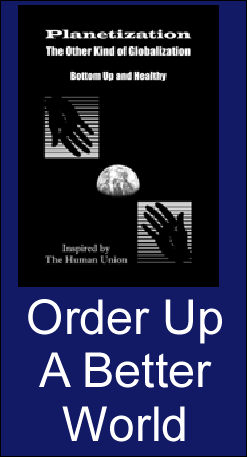It may be more revealing, however, to ask: Who is his role model? Which world leader, if any, is Bush trying to emulate in his foreign policy? Judging by his actions, the answer would seem to be Ariel Sharon.
Sharon gained power by deliberately derailing the Mideast peace process through his provocative visit to Temple Mount. When this led to an outpouring of Palestinian rage and violence, just as Sharon had planned, the Israeli public soured on the leadership of the Labour Party and Sharon’s hawkish Likud Party was swept into office in a landslide.
Without a doubt, this was a brilliant political ploy by Sharon, albeit one that resulted in hundreds of unnecessary deaths and left the Mideast peace process in a shambles.
Now consider Bush’s mega-hawkish State of the Union address, with its reference to an “axis of evil” made up of Iraq, Iran and North Korea. All other problems with this sort of gratuitous saber rattling notwithstanding, the thing that has caused the most head scratching among foreign policy analyses is the inclusion of Iran on this list.
Why pick a fight with Iran now? The long-standing deep freeze in American-Iranian relations has thawed significantly over the last few years. Iranian moderates, under the leadership of President Mohammad Khatami, have been working to modernise the country, while pushing for improved relations with the West. Iran even offered some assistance to the United States during the war in Afghanistan.
But these hopeful signs have largely evaporated now. As the administration must surely have anticipated, the threatening tone of the president’s remarks greatly strengthened the hand of Iranian hardliners. Once again, Iran appears united in its hatred of the United States, with thousands shouting “death to America.” The pure boneheadedness of the US policy has also deeply offended many of our allies in the war on terrorism, including much of Western Europe.
So why would the administration commit such an obvious blunder? The answer, sadly, appears to be that it wasn’t a blunder at all, but a deliberate provocation designed to destabilise Iranian relations with the West. Bush took a page from Sharon’s playbook; he is better off politically if Iran remains a “rogue State,” so he made it happen. It’s an awful conclusion to reach, but it’s the only explanation that makes any sense.
Unfortunately, this type of provocation is consistent with the general character of this hyper-politically charged administration. The moment Bush took office he began working to undermine South Korean President Kim Dae-jung’s efforts toward engagement and reconciliation with North Korea. He also quickly slammed the door on years of productive negotiations involving a nuclear weapons freeze and a moratorium on missile development by North Korea. Bush’s axis speech was the last straw for many South Koreans. “His recent rhetoric clearly shows the US intention to fan tensions on the Korean peninsula,” complained Sohn Nark-koo, spokesman for the Korean Confederation of Trade Unions, South Korea’s second largest labour union organisation.
Let’s face it: Bush needs “rogue States.” He needs them to justify the huge build up in defence spending he’s proposing, much of which is slated to go for the construction of new Cold War-style weapons of questionable military value in today’s world. When these expenditures are combined with the granddaddy of all cash cows, the Strategic Defence Initiative (“Star Wars”), Bush’s campaign contributors in the defence industry stand to be enriched far beyond the dreams of Enron executives.
In ordinary times, such a political payoff might produce stiff opposition. But when people are fretting about possible attacks, military expenditures—even wholly unjustified ones—suddenly become more palatable. Or at least that’s what the administration is banking on.
And the political benefit to the Bush administration of a world stocked with bogeymen extends far beyond defence spending. Keeping the public focused on an ill-defined war on terrorism, now expanded it to include all things “evil,” can do wonders for a President’s approval rating.
Karl Rove said basically the same thing in his widely reported luncheon speech to the Republican National Committee: “We can also go to the country on this issue because they trust the Republican Party to do a better job of protecting and strengthening America’s military might and thereby protecting America.”
So there you have it: Rogue States, a destabilised world and budget-busting military expenditures—they’re all good news to the Bush administration. It’s a pity the same can’t be said for the country as a whole.
https://pakobserver.com/february2002/28/article02.shtml
Who Is Bush’s Role Model
By Kadar Khan
Pakistan Observer - 28 February 2002
Posted on the Independent Newswire on 28 February 2002
Ref: www.indymedia.org/front.php3?article_id=141834&group=webcast
To next article in The Supremacy and Reach Of The Planet-Searing Pentagon
Phase 1 “Know” Menu
Looking for Justice in All the Wrong Places Menu
Insights-Reflections-Analysis Menu
Covering Up the Cover Up Menu
The Reality of Israeli Zionist Infiltration Menu
Are We On the Path of Expanding Liberty or Tyranny?
Declaring Independence and A State of Global Rebellion Menu
A Picture of the Stars and A Voice from the Ethers Menu
Interim Addendums During Phase 1
